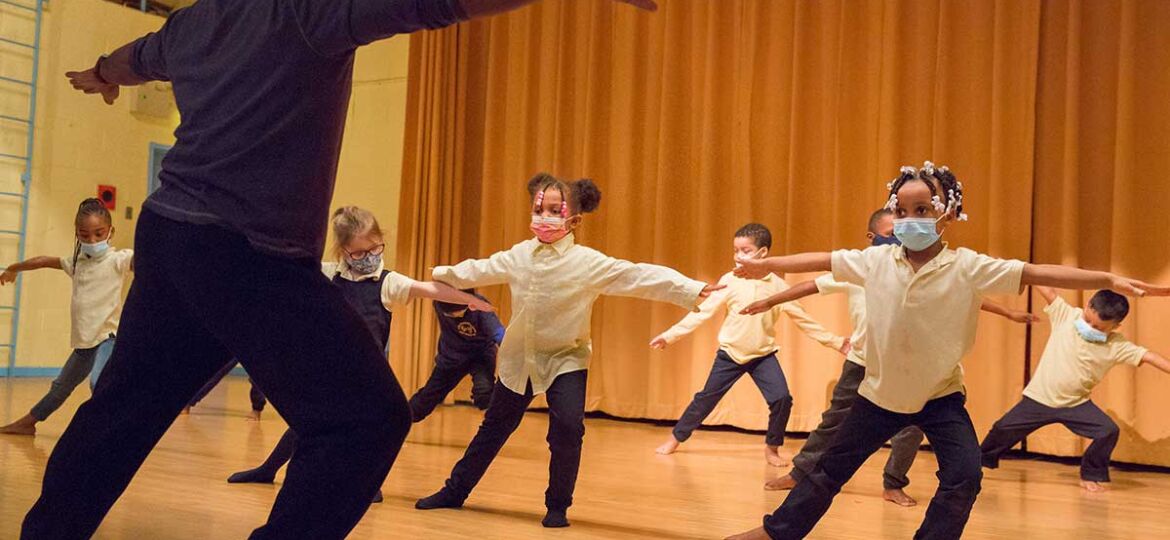
Jump-Starting Success: Early Childhood at United Community Schools
A look at early childhood programs within the United Community Schools network.
It’s a Wednesday afternoon at PS 40 in Brooklyn, and 1st-graders are on the auditorium stage. A hush comes over the room as the 6- and 7-year-olds run flawlessly through their ballet choreography, their shoes and socks lined up neatly on the floor in front of the stage.
“They’re so focused,” said teacher Stephanie Nuñez. Every adult who is familiar with the class tells Nuñez her students are “different” from most 1st-graders. “I think it has to do with how their brains are being worked,” she said, in the innovative early childhood program in this United Community School.
Nunez’s class is a dual-language immersion class. The students receive instruction in English and Spanish, alternating between languages each half-day.
She explained that research shows dual-language in early childhood grades correlates with higher scores on state tests and better academic outcomes. “They’re learning content in two languages at once,” she said, which helps to cement concepts. The program is an example of one of UCS’ core pillars — academic support. In addition to language immersion, the students benefit from other UCS partnerships including ballet and cooking classes. “These programs really wouldn’t be offered” outside of a community school, Nuñez said.
At PS 184 in Brooklyn, another UCS partnership helps kindergartners get a jump-start on caring for their health. Every week, CityTech nursing interns work with students on hand-washing, nutrition, hygiene and wellness. This year, for the first time, the program is also offering Zoom workshops for parents on health and safety topics such as emergency preparedness.
“We’re bringing health and education together,” said Dr. Kathy Falk, who leads the program. Especially in the age of COVID-19, “you can’t have one without the other.” Falk said it’s especially beneficial to teach these skills during early childhood because “it’s better to instill healthy habits than undo unhealthy habits later.”

UCS early childhood programs span from 3K to 2nd grade. For example, a low-cost after-school program at PS 196 in Brooklyn provides developmentally appropriate, evidence-based after-school care for 3-year-old students. At this age, evidence-based means lots of hands-on activities and learning through play, said their teacher Stephanie Canto.
“They’re like little sponges,” Canto said, “They’re just so open to explore anything.” In the after-school program, her students are “learning routines, learning to socialize, doing arts and crafts,” and other “hands-on, project-based learning,” she said, and the program has had a positive impact. They are “talking more to each other, sharing toys and learning routines,” she said.
Marisol Peña, a UFT educational liaison who works with UCS schools, said the 3K after-school program is “another example of UCS being responsive to a community’s needs and not being cookie-cutter.”
PS 196 parents said they needed an after-school program, so the school provided it. “Every school, every community, is different,” Peña said, “and we want to customize services to them.”

